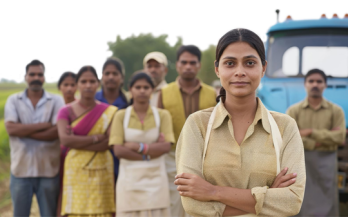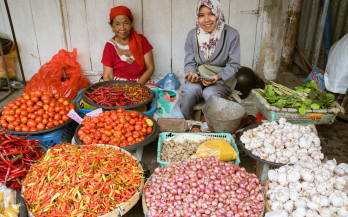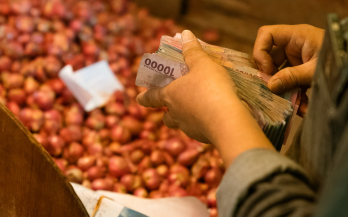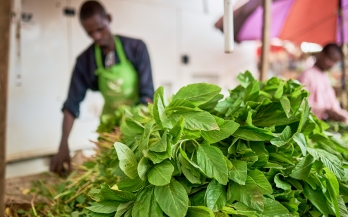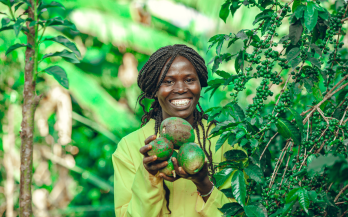Political economy dynamics—that is, conflicts and trade-offs across different interest groups that play an important role in the food system—permeate many decisions about food systems policy and implementation. Development practitioners working in the food systems space—inclusive of agriculture, nutrition, and environmental policies—need to be aware of these dynamics to be able to support policy advocacy, development, and implementation.
Enhancing nutrition for India’s working-age population through workforce nutrition practices can yield numerous benefits, including improved well-being for workers and their families, better productivity, and a stronger economy. Key pillars include access to healthy food, breastfeeding support, nutrition health checks, and nutrition education.
This brief describes a Government of India initiative – the Healthy and Hygienic Food Streets (HHFS) programme that aims to make the country’s street food safer. It shares some of GAIN’s recent contributions to these efforts and provides some implications for national and state governments to consider.
Environmental factors impact human health and nutrition through various pathways, and these impacts can be felt disproportionately by already vulnerable groups like women and children.
As a follow-on to the core report ‘The Case for Investment in Nutritious Food Value Chains: An Opportunity for Gender Impact’, GAIN and SAGANA are publishing the nine case studies showcasing the business and impact case for gender-smart nutrition investments.
This brief explains some key findings and recommendations from a recent roadmap report on FLW reduction produced by the Ministry of National Development Planning (BAPPENAS), with key partnerships from the Global Alliance for Improved Nutrition (GAIN). It highlights the crucial role of coordinated efforts in achieving the desired reduction in FLW and thereby mitigating its environmental and economic impacts.
While improved nutrition is central to achieving many development goals, investment in nutrition currently falls far short of what is needed. One group of actors that could potentially help address this is development finance institutions (DFIs): specialised financial organisations that promote sustainable development by providing capital, usually for private-sector-led projects. DFIs seem like promising actors to support nutrition: they are already active in low- and middle-income countries, invest in adjacent sectors like agriculture, and have large financial resources. However, to date DFIs have not been very active in investing in nutrition-supporting businesses and funds. This paper seeks to understand the barriers to investment in nutrition-related projects and develop concrete solutions to unlock funding through a mapping of DFIs’ approaches combined with in-depth interviews with several DFI representatives.
ACT4FOOD was launched as a global youth-led movement to transform food systems, with a pledge to encourage millions of young people to create sustainable food systems and more opportunistically to get involved in the UNFSS and to bring their demands to the decision-making table.
Climate change is a threat to the sustainability of global and national food systems. Unsustainable food systems cannot ensure food and nutrition security or healthy eating patterns. Climate change is already altering agricultural production, food processing, distribution, and conSumption. Its impacts disrupt food supply, limiting people’s access to the diverse, safe, and nutritious foods that make up high-quality diets.
This report demonstrates that investing in nutritious food value chains allows investors to achieve significant gender impact. The hope is that more funding will be unlocked for nutritious food value chains, particularly for small and medium enterprises (SMEs), which critically lack access to financing in emerging markets.


